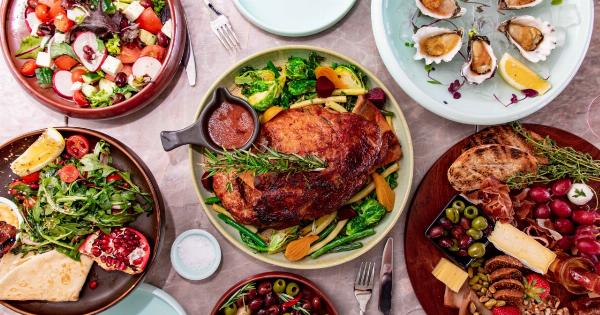Washing food is an essential step in food preparation as it helps to remove dirt, bacteria, pesticides, and other contaminants that may be present on the surface.
This simple act helps to ensure the safety of the food we consume and reduce the risk of foodborne illnesses. However, there are certain foods that don’t require washing before cooking. In this article, we will explore these foods and the reasons behind their exemption from washing.
1. Meat and Poultry
When it comes to meat and poultry, it is generally not recommended to wash them before cooking. Washing raw meat may lead to the spread of bacteria through splashing water droplets, which can contaminate surfaces in your kitchen.
Additionally, washing doesn’t effectively remove bacteria from meat or poultry, as the heat during cooking will eliminate any harmful bacteria present.
2. Eggs
Eggs are another food item that shouldn’t be washed before cooking. The natural protective coating on the eggshell, known as the cuticle, helps to seal the shell pores and prevent the entry of bacteria.
Washing eggs removes this protective coating, increasing the chances of bacterial contamination. Therefore, it is best to store eggs in the refrigerator and only wash them right before use.
3. Fish and Seafood
Similar to meat and poultry, washing fish and seafood isn’t necessary and can spread bacteria. Adequate cooking temperatures will kill any potential pathogens.
It is more important to properly handle and store fish and seafood to maintain their freshness and minimize the risk of contamination.
4. Mushrooms
Contrary to popular belief, it is not recommended to wash mushrooms. Mushrooms are porous and readily absorb water, which can result in a soggy texture and dilution of flavor.
Instead, wipe them gently with a damp cloth or use a mushroom brush to remove any visible dirt or debris.
5. Packaged Greens and Salad Mixes
Prepackaged greens and salad mixes that are labeled “washed” or “ready-to-eat” have already undergone thorough cleaning processes in the manufacturing facility.
Washing them again at home may introduce potential contaminants from your hands, kitchen utensils, or sink. It is advisable to consume these greens without further washing to maintain their quality and safety.
6. Root Vegetables
Root vegetables, such as potatoes, carrots, and beets, should not be washed before storing them. Moisture can promote the growth of mold and bacteria, leading to spoilage.
It is best to store them in a cool and dry place, preferably in a well-ventilated bag, to maintain their freshness. Rinse them thoroughly under running water just before cooking to remove any dirt or soil.
7. Certain Fruits
Not all fruits need to be washed before consumption. Fruits like bananas, oranges, and melons have a protective outer layer that prevents contamination.
However, it is essential to wash fruits such as apples, berries, and grapes, as they may have residual pesticides or dirt on their skin.
8. Canned Foods
Canned foods have already been processed and cooked during the canning process, making them safe to consume without washing.
However, it is crucial to check the can for any signs of damage or bulging, as this could indicate spoilage or bacterial contamination.
9. Bread and Bakery Items
Bread and other baked goods generally do not require washing before consumption. The baking process kills any harmful bacteria present, and washing can ruin the texture and taste of these products.
Store-bought bread and bakery items are typically safe to eat as they undergo quality control processes.
10. Pre-Cut Fruits and Vegetables
Pre-cut fruits and vegetables that are sold in sealed packages are usually washed and ready to eat. These items are processed in facilities that follow strict hygiene regulations.
Washing them again can introduce potential contaminants and compromise their quality and safety.
Conclusion
While washing food is generally advised to ensure food safety, there are certain foods that don’t require washing before cooking.
Meat, poultry, eggs, fish, mushrooms, packaged greens, root vegetables, certain fruits, canned foods, bread, and pre-cut fruits and vegetables fall under this category. By understanding which foods shouldn’t be washed, we can maintain their quality, taste, and safety while reducing the risk of cross-contamination in our kitchens.



























